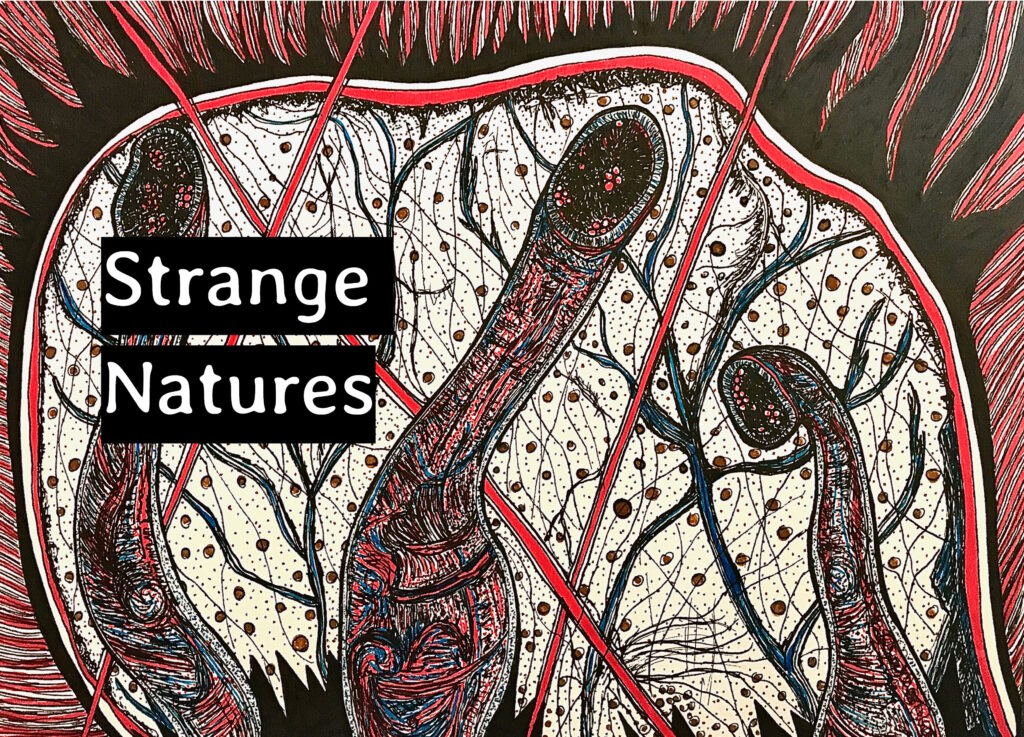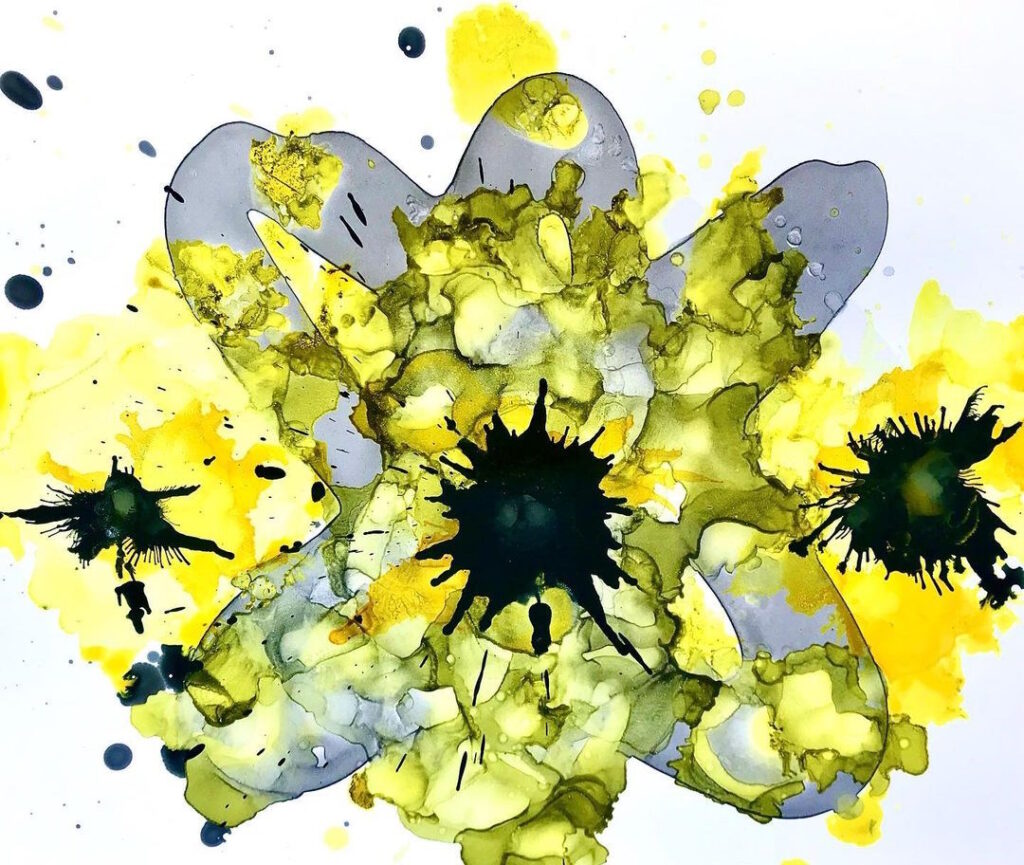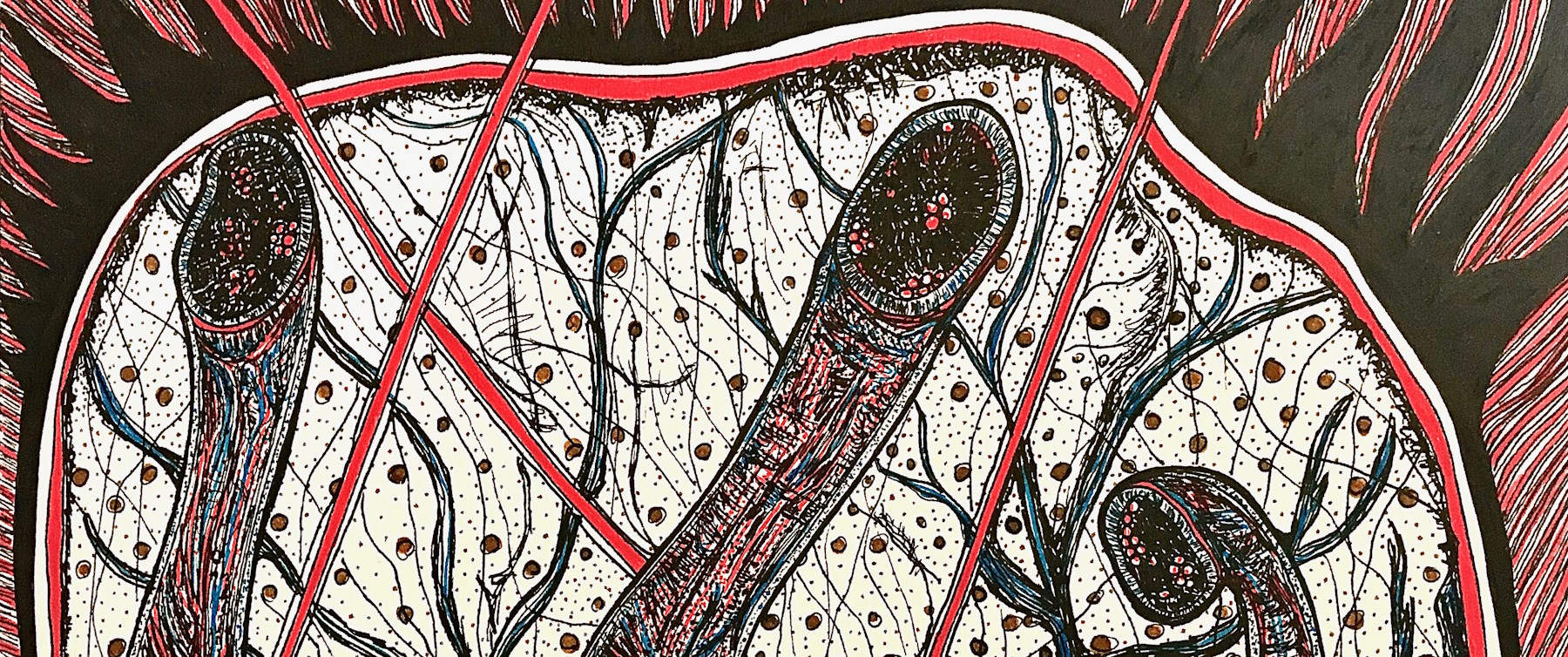Explore our season dedicated to the theme of Strange Natures. Our resources include a free printable zine, and a series of texts, audio and video contributions by authors around the world.
View all content in this season:
Zine
We have created a free zine based on the series, with text and art from contributions received, plus original artworks by the Future Natures collective. The zine is available in online and printable versions.
About Strange Natures
These are strange days. The air is made heavy by crises, and we can almost feel static from frictions as we rub against invisible thresholds.
For some, there is a sense of being stuck in a long present made weird as near-futures interact with revenants from the past. We walk landscapes that feel out of place, out of space, out of time, eerie, strewn with ruins, haunted by traumas – life-worlds foreclosed, failed promises of progress, the spectres of imagined futures that never materialised.
For some, daily experience can frustrate ordinary rational ways of perceiving time, space, ecology, causality, and agency. It can frustrate the sense of control, of mastery, of anthropocentrism that underlie big stories we’re told about growth, development and nature.

Ruptures are ever more difficult to hide, and as the shadows get longer, uncertainties grow, and we hear the monsters’ claws scratching at the door… the strange can be terrifying.
But abolishing the rational, embracing the strange can create portals to other worlds.
These can open up new ways of seeing that can help us historicize, recast and subvert binary ways of thinking, dominant framings and anthropocene politics of ecology, crisis and control. They can help us to make sense of alienating and unsettling effects that globalisation has had on bodies and embodied experience. They might provoke us to re-map geographies and re-formulate stories about relations between places and their ‘absent presences’, rendered through the historical and present-day enclosure and erasure of people’s struggles for life and life-worlds, against expansion of colonialism and petro-racial capitalism.
How can a fascination with the strange that abolishes the rational, the search for control, help us face our fears of the dark places and cosmic horrors of extinction, ecocide and climate change? How can it help us to move beyond apocalyptic grand narratives of the planetary, the spectacular, the abstract?
How can it help us to instead tell stories that ‘stay with the troubles’ of actual, ordinary, emplaced relations, struggles and happenings that come with living and dying in the ecologically troubled present? Can noticing, seeing, listening and reading reality through strange lead us to radical re-enchantment, to giving-over and embracing the weirdness of the world as we know it, to of acceptance of uncertainty as fundamental to experience and the inevitability of transformation to a changing, vastly more-than-human universe of possibilities?
A Season of Strange Natures: call for entries & ideas
A fascination with the strange is a fascination for that which lies beneath the surface, beyond ordinary ways of seeing, sensing and perceiving. In the past decade and more, there has been a revival, so to speak, as artists, novelists, filmmakers, journalists, scientists and critical theorists have engaged the aesthetics, affect and atmospherics of the strange, the supernatural, the haunted, the weird, the monstrous and the horrific as critical tools and allegorical devices for seeing, exploring and storying history, politics and natures at the current juncture.

For our season on Strange Natures, we invited contributions of creative works and reflections that unsettle our expectations and engage with the strange through a variety of genre lenses. Contributions could explore, for example, spectral geographies, haunted places and landscapes, eerie atmospheres, weird spaces and bodies, ecologies, monstrous creations, uncanny encounters and entanglements, contemporary folk- or fairy tales and (other)worldly enchantments.
Contributions were welcome in diverse forms and media, not limited to art, short fiction and non-fiction, visual ‘memes’, text and photo-essays, film/book reviews or responses, short videos / films, photography, audio, and multimedia pieces.
Stay informed
To get news about future calls for contributions, sign up to our mailing list.
Join the network: connect with others to share ideas, information and projects through our dedicated network space and forum.
Recent entries
-
Zine: ‘Strange Natures’
A zine of art and essays on the theme of ‘Strange Natures’.
Resources
Explore some related materials from Future Natures and other sources.
A Journey through the ancient commons of the Bristol Ring Road by Andy Thatcher
Ogres of East Africa by Sofia Samatar
The world has become weird: crisis, natures and radical re-enchantment – Blog by Amber Huff and Nathan Oxley, January 2021
Escape from Incel Island – book by Margaret Killjoy
Weird Ecologies (comic)
Weird Ecologies – talk by Amber Huff and Adrian Nel, 2022
The Weird and the Eerie – Roger Luckhurst’s review of the book by Mark Fisher
Hauntings in the Anthropocene – essay by Jeff VanderMeer
Cover art: Heather Sanchez
